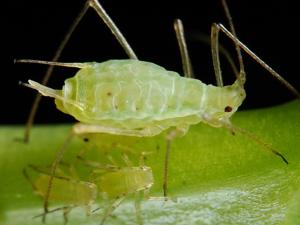

Research Expertise and Interest
aging, host-microbe interactions, Microbiome, C. elegans
Research Description
Research at the Shapira lab seeks to understand the fundamentals of host-microbe interactions in the context of the whole organism, using the powerful genetic model Caenorhabditis elegans as a model host. We focus on the role of host genetic factors in shaping gut microbiome structure and function, how gut commensals affect host immunity and host-pathogen interactions, and how aging changes all that (with special interest in the role of antagonistic pletriopy in aging). Our level of investigation spans the range between molecular mechanisms, ecological constraints and impact on evolution.
Selected publications:
Microbiome remodeling through bacterial competition and host behavior enables rapid adaptation to environmental toxins, Dan J Kim, Olga Maria Pérez-Carrascal, Catherin DeSousa, Da Kyung Jung, Seneca Bohley, Lila Wijaya, Kenneth Trang, Sarah El Khoury, Michael Shapira. BioXiv (2023)
An Enterobacteriaceae bloom in aging animals is restrained by the gut microbiome, Rebecca Choi, Rahul Bodkhe, Barbara Pees, Dan Kim, Maureen Berg, David Monnin, Juhyun Cho, Vivek Narayan, Ethan Deller, Cathy Savage-Dunn and Michael Shapira. BioRxiv (2023)
Host preference of beneficial commensals in a microbially-diverse environment, Pérez-Carrascal, O.M., Choi, R., Massot, M., Pees, B., Narayan, V., and Shapira, M. Frontiers Microbiology 12:795343 (2022).
mir-71 mediates age-dependent opposing contributions of the stress-activated kinase KGB-1 in Caenorhabditis elegans , Ruediger, C., Karimzadegan, S., Lin, S., and Shapira, M. Genetics, 218(2) (2021).
TGFβ/BMP immune signaling affects abundance and function of C. elegans gut commensals, Berg, M., Monnin, D., Cho J., Nelson, L. and Shapira M. Nature Communications (2019)
Integration of stress signaling in Caenorhabditis elegans through cell non-autonomous contributions of the JNK homolog KGB-1. Liu, L., Ruediger, C. and Shapira, M Genetics 210 (4)(2018).
Host-microbiota interactions in Caenorhabditis elegans and their significance. Shapira, M. Current Opinions in Microbiology 38:142-147 (2017).
Gut microbiotas and host evolution: scaling up symbiosis. Shapira, M. Trends in Ecology and Evolution 31(7):539-49 (2016).
Assembly of the Caenorhabditis elegans Gut Microbiota from Diverse Soil Microbial Environments. Berg, M., Stenuit, B., Wang, A., Ho, J.A. Alvarez-Cohen, L. and Shapira, M. ISME J. 10, 1998–2009 (2016).
The developmental intestinal regulator ELT-2 controls p38-dependent immune responses in adult C. elegans. Block, D.H., Twumasi-Boateng, K., Kang, H.S., Carlisle, J.A. and Shapira, M. PLoS Genetics. 11(5):e1005265 (2015).
An age-dependent reversal in the protective capacities of JNK signaling shortens C. elegans lifespan . Twumasi-Boateng, K., Wang, T., Tsai, L., Lee, K.L., Salehpour, A., Bhat, S., Tan, M.W. and Shapira, M. Aging Cell, 11(4):659-67 (2012).
